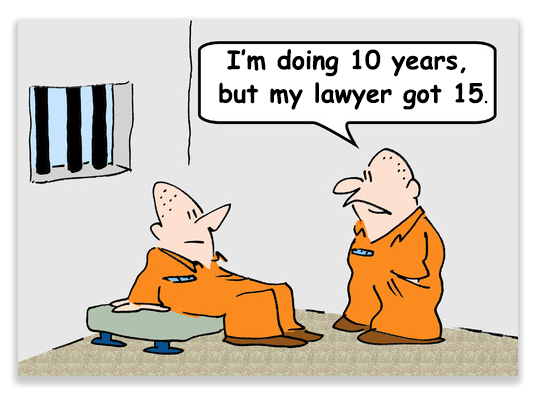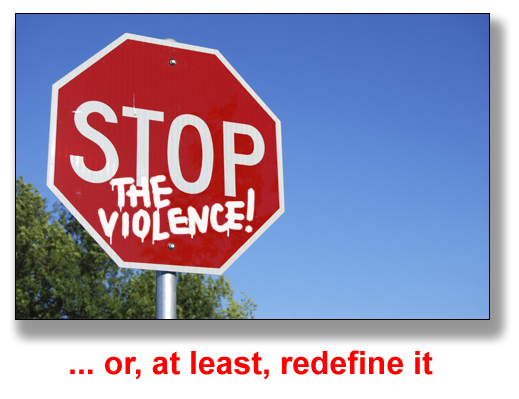We post news and comment on federal criminal justice issues, focused primarily on trial and post-conviction matters, legislative initiatives, and sentencing issues. Today, we’re doing clean-up with a number of short takes from our most recent newsletter to inmates.

8TH CIRCUIT RULES MISSOURI 2ND DEGREE BURGLARY DOES NOT COUNT FOR ACCA
 Chuck Naylor pleaded guilty to being a felon in possession of a firearm. The district court found that four of his prior Missouri 2nd-degree burglary convictions qualified as violent felonies under the Armed Career Criminal Act. On appeal, the 8th Circuit agreed, because it was bound by United States v. Sykes.
Chuck Naylor pleaded guilty to being a felon in possession of a firearm. The district court found that four of his prior Missouri 2nd-degree burglary convictions qualified as violent felonies under the Armed Career Criminal Act. On appeal, the 8th Circuit agreed, because it was bound by United States v. Sykes.
But in an April 5 rehearing en banc, the Circuit changed its mind, holding that “convictions under Mo. Rev. Stat. § 569.170 (1979) do not qualify as violent felonies under the ACCA. To the extent Sykes concluded otherwise, it is overruled.”
The decision suggests that a lot of people doing ACCA time because of the Sykes decision will be visiting their local district courts soon with 28 USC 2241 petitions.
United States v. Naylor, Case No. 16-2047 (8th Cir. Apr. 5, 2018)

FDA SEEKING COMMENT ON MARIJUANA DRUG SCHEDULE
Mike, an alert reader, brought to our attention that the FDA and Trump Administration have asked the public to comment on the “abuse potential, actual abuse, medical usefulness, trafficking, and impact of scheduling changes on availability for medical use of” marijuana and its derivatives. Mike noted that “there are medical benefits, jobs to be had, taxes to be made to go to education, a sure way to help get the people off opioids, not to mention a drop in schedule would help all those incarcerated with mandatory mins.”
Any interested person can comment on the proposal online.
Food and Drug Administration, Case No. FDA-2018-N-1072), International Drug Scheduling; Single Convention on Narcotic Drugs; Cannabis Plant… Request for Comments

CALLING JUDGE POSNER
 We wrote about Judge Posner’s new pro se assistance organization a few weeks ago, and since then, we’ve heard from a number of people wanting contact information. We still do not have an address, but the editor at Litigation Daily provided us with the organization’s web address:
We wrote about Judge Posner’s new pro se assistance organization a few weeks ago, and since then, we’ve heard from a number of people wanting contact information. We still do not have an address, but the editor at Litigation Daily provided us with the organization’s web address:
http://www.justice-for-pro-ses.org

THE AUSA, NOT THE COURT, PULLS 5K1.1 STRINGS
When a federal defendant assists the authorities prior to his or her being sentenced, the government returns the favor by filing a motion with the sentencing court under Sec. 5K1.1 of the Guidelines, asking for a sentence cut. Sec. 5K1.1 is about the only way a defendant can get a substantial reduction in sentence (the cut averages about 52%), and only the government can make the motion.
An unnamed defendant who helped out the government received his USSG Sec. 5K1.1 motion at sentencing, but the Feds only recommended dropping his 235-293 sentencing range to 135-168 months. That was a nice reduction, but was still above his 120-month statutory minimum sentence. The sentencing judge granted the 5K1.1, but departed downward to 80 months. The government thought that was too much, and appealed.
 Last week, the 5th Circuit reversed, holding that the law is clear a court cannot impose a sentence below a statutory minimum for substantial assistance unless the government, in its 5K1.1, specifically moves to go below the minimum. The district court knew this, but justified its sentencing decision by citing its authority “to review a prosecutor’s refusal to file a substantial-assistance motion and to grant a remedy if they find the refusal was based on an unconstitutional motive.” The district court said its bigger reduction was warranted because the government did not take into account the lower Guidelines sentencing range the district court had applied, and overlooked other grounds, such as the fact that Appellee voluntarily withdrew from the conspiracy early on, encouraging others in the conspiracy to quit, volunteering at a local church, and maintaining a job. The district judge said he “disagrees with the concept of mandatory minimum sentencing by which members of the legislature and the executive who do not see the human beings before the Court nevertheless impose on the judiciary arbitrary minimum sentences.”
Last week, the 5th Circuit reversed, holding that the law is clear a court cannot impose a sentence below a statutory minimum for substantial assistance unless the government, in its 5K1.1, specifically moves to go below the minimum. The district court knew this, but justified its sentencing decision by citing its authority “to review a prosecutor’s refusal to file a substantial-assistance motion and to grant a remedy if they find the refusal was based on an unconstitutional motive.” The district court said its bigger reduction was warranted because the government did not take into account the lower Guidelines sentencing range the district court had applied, and overlooked other grounds, such as the fact that Appellee voluntarily withdrew from the conspiracy early on, encouraging others in the conspiracy to quit, volunteering at a local church, and maintaining a job. The district judge said he “disagrees with the concept of mandatory minimum sentencing by which members of the legislature and the executive who do not see the human beings before the Court nevertheless impose on the judiciary arbitrary minimum sentences.”
Tough, the Circuit said. Regardless of the district court’s own policy views about the use of mandatory minimum sentences, the law in this area is clear. And we must faithfully apply it. A motion by the government was required for the district court to depart below the minimum term of imprisonment established by Congress for the drug offense Appellee committed. Thus, it was error for the district court to sua sponte depart from the minimum.”
United States v. Sealed Appellee, Case No. 17-50451 (5th Cir. Apr. 10, 2018)
– Thomas L. Root





